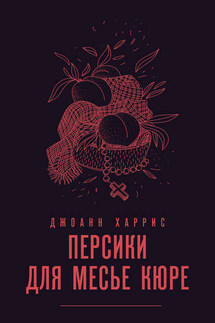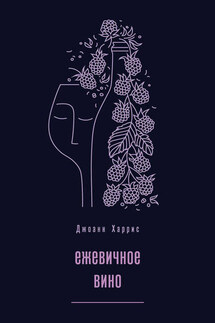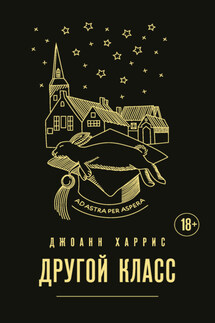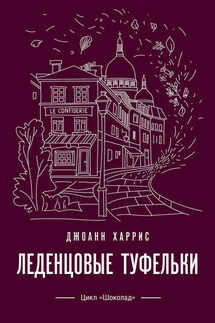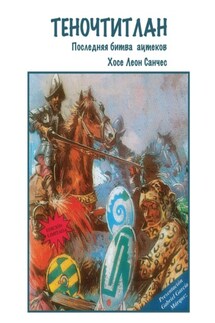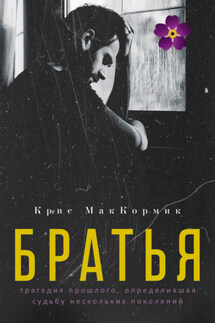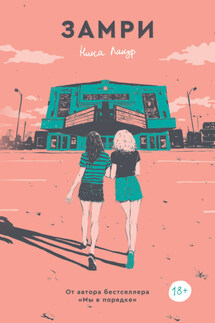Five Quarters of the Orange / Пять четвертинок апельсина - страница 5
By the old jetty, Paul Hourias has a shack from which he sells bait and fishing tackle, not spitting distance away from where we used to fish, he and Cassis and I, and where Jeannette Gaudin was bitten by the water snake. Paul’s old dog lies at his feet, eerily like the brown mongrel that was his constant companion in the old days, and he watches the river, dangling a piece of string into the water as if he hopes to catch something.
I wonder if he remembers. Sometimes I see him looking at me-he’s one of my regulars-and I could almost think that he does. He’s aged, of course-so have we all. His moony, round face has darkened, grown pouchy and mournful. A limp mustache the color of chewed tobacco. A cigarette end between his teeth. He seldom speaks-he never was talkative-but he watches with that sad-dog expression, a navy beret crammed over his skull. He likes my pancakes, my cider. Perhaps that’s why he never said anything. He was never one to cause a scene.
4
I had been back for almost six years when I opened the crêperie. By then I had money set aside, custom, acceptance. I had a boy working for me on the farm-a boy from Courlé, not from one of the Families-and I took on a girl to help with the service. I started with only five tables-the trick has always been to think small at first, to avoid alarming people-but eventually I had double that, plus what I could fit on the terrasse in front on fine days. I kept it simple. My menu was limited to buckwheat pancakes with a choice of fillings, plus one main dish every day and a selection of desserts. That way I could handle the cooking myself, leaving Lise to take the orders. I called the place Crêpe Framboise after the house specialty, a sweet pancake with raspberry coulis and my homemade liqueur, and I smiled a little to myself, thinking of their reaction if they could have known… Several of my regulars even came to calling the place Chez Framboise, which made me smile all the more.
It was at this point that men began to pay attention to me again. You understand, I had become quite a wealthy woman by Les Laveuses standards. I was barely fifty, after all. Plus I could cook and keep house… A number of men paid a kind of court to me, honest, good men like Gilbert Dupré and Jean-Louis Lelassiant, lazy men like Rambert Lecoz, who wanted a lifetime meal ticket. Even Paul, sweet Paul Hourias with his drooping nicotine-streaked mustache and his silences. Of course anything like that was out of the question. This was one foolishness I could never succumb to. Not that it caused me more than the occasional pang of regret; no. I had the business. I had my mother’s farm, my memories. A husband would lose me all that. There would be no way I could conceal forever my assumed identity, and though the villagers might have forgiven me my origins at first, they could not forget six years of deceit. So I refused every offer, the tentative and the bold, until I was generally held to be first inconsolable, then impregnable and then, finally, years later, too old.
I had been in Les Laveuses for almost ten years. For the last five I had invited Pistache and her family to stay during the summer holidays. I watched the children grow from curious big-eyed bundles to small brightly colored birds flying over my meadow and through my orchard on invisible wings. I have a good daughter in Pistache. Noisette (my secret favorite) is more like me; sly and rebellious, black eyes like mine and a heart full of wildness and resentment. I could have stopped her leaving-a word, a smile might have done it-but I did not; fearing, perhaps, that she would turn me into my mother. Her letters are flat and dutiful. Her marriage has ended badly. She works as a waitress in an all-night café in Montreal. She refuses my offers of money. Pistache is the woman Reinette might have been, plump and trusting, gentle with her children and fierce in their defense, soft brown hair and eyes as green as the nut from which she takes her name. Through her, through her children I have learned to relive the good parts of my childhood.
